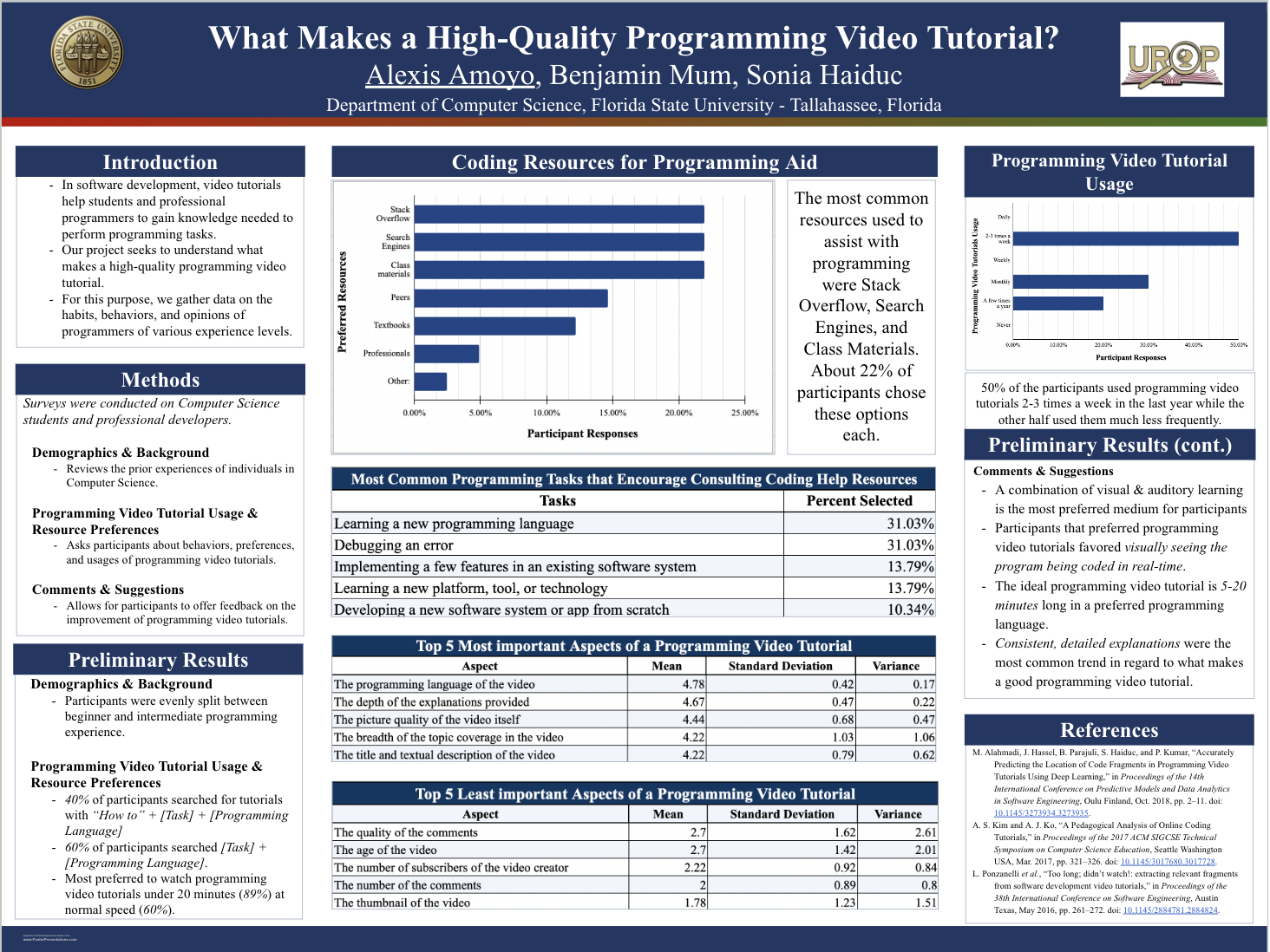Research Symposium
23rd annual Undergraduate Research Symposium, April 6, 2023
Alexis Amoyo Poster Session 3: 2:45 pm - 3:45 pm/ Poster #9
BIO
Alexis is an aspiring Data Analyst from Naples, Florida interested in research involving Data Science, Artificial Intelligence, and Cloud Computing. Currently, she is actively involved as the Finance Chair of the Filipino Student Association, an expected inductee for the Garnet and Gold Society, and a member of the Association for Computing Machinery. She intends to pursue a Master of Computer Science at Florida State University under the Degree in Three/More in Four Program as well as the Combined Pathways program.
What Makes a High-Quality Programming Video Tutorial?
Authors: Alexis Amoyo, Sonia HaiducStudent Major: Computer Science
Mentor: Sonia Haiduc
Mentor's Department: Computer Science Mentor's College: College of Arts and Sciences Co-Presenters:
Abstract
In order to improve knowledge acquisition from video tutorials by professional software developers and computer science students, our project seeks to understand what makes a high-quality programming video tutorial that viewers enjoy and can easily learn from. For this purpose, we gather data on the habits, behaviors, and opinions of programmers of various experience levels related to their use of video tutorials. We conducted a survey sent out to a variety of programmers and computer science students across a broad range of demographics to identify how they seek out useful video tutorials, as well as the importance of various video tutorial characteristics in their decision to choose one tutorial over another. Participants also commented on aspects they believed would improve video programming tutorials. We also performed a series of interviews with programmers and students that helped us further our understanding of programming video tutorial preferences and potential general improvements to this kind of resource. Future work includes performing an observational study in which participants are given programming tasks of varying difficulty and are monitored for what resources each participant seeks out for aid. These participants will then be questioned on their actions and resource preferences. Our work is limited in that the majority of our responses are from open-source software developers and students from the Computer Science Department at Florida State University, therefore showing that this survey may suffer from selection bias. Future work will seek to expand the participant population.
Keywords: Computer Science, Education, Tutorials, Video, Programming


